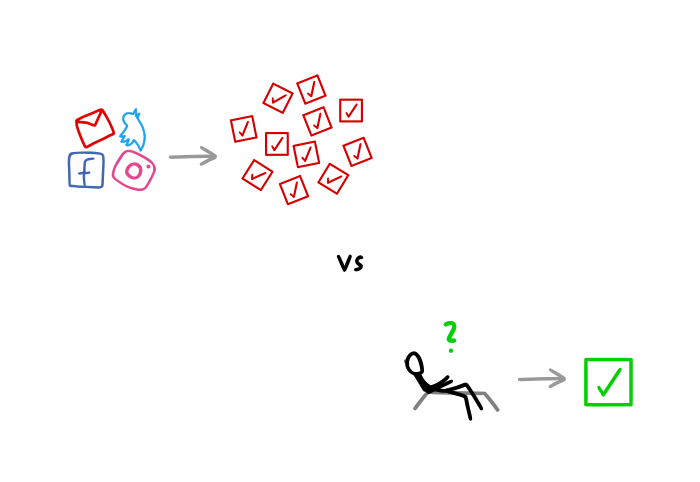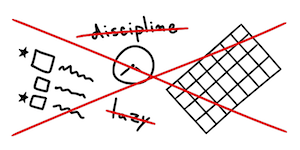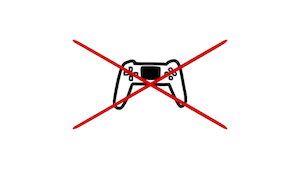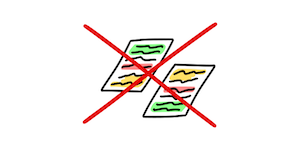Reject platform choices, embrace personal decisions

In the internet era, our lives have become a series of choices –choices all too often defined by others. When we scroll through content on any platform, we become subtly restricted by it.
We have choices such as:
- Watch
- Like
- Comment
- Subscribe
- Post
- Share
- ...
We become caged by whatever choice architecture the designers at the big companies have engineered for us. They are guiding us towards choices that take up our time for pennies on the dollar. Attention captured and turned into profit (and our time wasted for meager short-lasting return).
These platforms and digital interfaces in general often don't offer choices that would actually make us happy with how we spend our day.
They don't offer choices such as:
- Journal about how your day went
- Reflect on what to focus on right now
- Revise work notes
- Tidy up your habitation
- Plan a fun trip with a friend
- ...
No, there's no advertising money in those. These actions require personal decisions — decisions we arrive at through a bit of mind-wandering and self-discovery (something that the platforms destroy).
Personal decisions emerge from a space within us that's untouched by external influences, a space where our genuine desires and aspirations reside. Unlike platform choices, decisions are not merely reactions to stimuli; they are deliberate actions guided by our own individual values and goals.
Yet, the brain-hacking platforms have a way of inadvertently steering us away from making these decisions, so much so that we often begin to lose our ability to make them in the first place.
Think about the times you've scrolled mindlessly through social media, clicking on whatever content the algorithm serves up. In those moments, you're making insignificant choices to engage with what's popular, what's trending, and what's capturing the collective attention. These choices are often so habitual that they barely count as choices at all. We often don't think about putting our thumb on a screen and scrolling more, we just do it. And when we do, is that a "choice" reflective of our personal interests? Is it aligned with our creative aspirations? Hardly.
Then, when we unplug from the steady dopamine drip of these content farms, we feel restless. What do I do now? Oh, let's open YouTube...
It's precisely in these moments that we must consciously carve out space for actual decisions. Instead of being swayed by the external noise, we can pause, reflect, and ask ourselves: What do I actually want to do right now?
This is such a simple question, but rare is the algorithm that will answer it in a way that's actually beneficial to us in the long term.
Now, there is a catch: personal decisions require more thought and effort than platform choices.
So in order to make it easier to apply this and start making personal decisions, here is a simple habit.
Do nothing when you're unfocused
What platform do you reach for, out of habit? Instagram? Youtube? Twitter?
Whatever it is, start interrupting that habit (or catching yourself when you fall prey to it).
When you're not focused on a task, let your mind wander. Sit and do nothing, until you remember what you actually wanted to do.
This sounds easier than it is, but most things do. It requires a bit of mindfulness to actually put into practice.
Of course, removing apps from your phone or blocking certain websites for periods of time is a good way to interrupt the automatic habit and help you pause.
What do I want to do right now?
We don't ask this question often enough.
Once you decide to not check something and pause, then you get back the space to figure out what you really wanted to do.
If you let your mind wander, unfinished business will naturally rise to the top of your conscious mind.
Oh, I needed to message Jim about...
I forgot about the change to this document
Wait, can't I do this task way simpler?
And there's another benefit: you come up with better ways to solve problems.
When we let the mind wander, a broader set of neural pathways activates, improving our ability to come up with creative solutions to problems.
It should be noted that too much mind-wandering has potential negative effects on mental health and mood, which is why we suggest questions like What do I want to do right now? or What needs to be done? to channel the mind-wandering towards productive actions. The question serves as an anchor, a focal point for our mind.
Another anchor can be something like work notes on a notepad or whiteboard. Fill your mind with facts and ideas relevant to a particular problem, and then step back and just stare at them. Do nothing, stare at the contours of the problem you're dealing with, and you will begin to see what needs to be done. This will help you stay on task, instead of letting the mind wander completely off-topic.
Summary
Platforms give us pre-prepared choices that often steer us away from actions that would be good for us.
Interrupt the habit of checking by doing nothing for a moment. Let your mind surface .
Ask What do I actually want to do right now? to surface productive or worthwhile actions, instead of the myriad of insignificant "choices" presented to you by big tech.
This one habit can be the difference between going to bed happy with how you spent your time, and regretting how you spent it.



